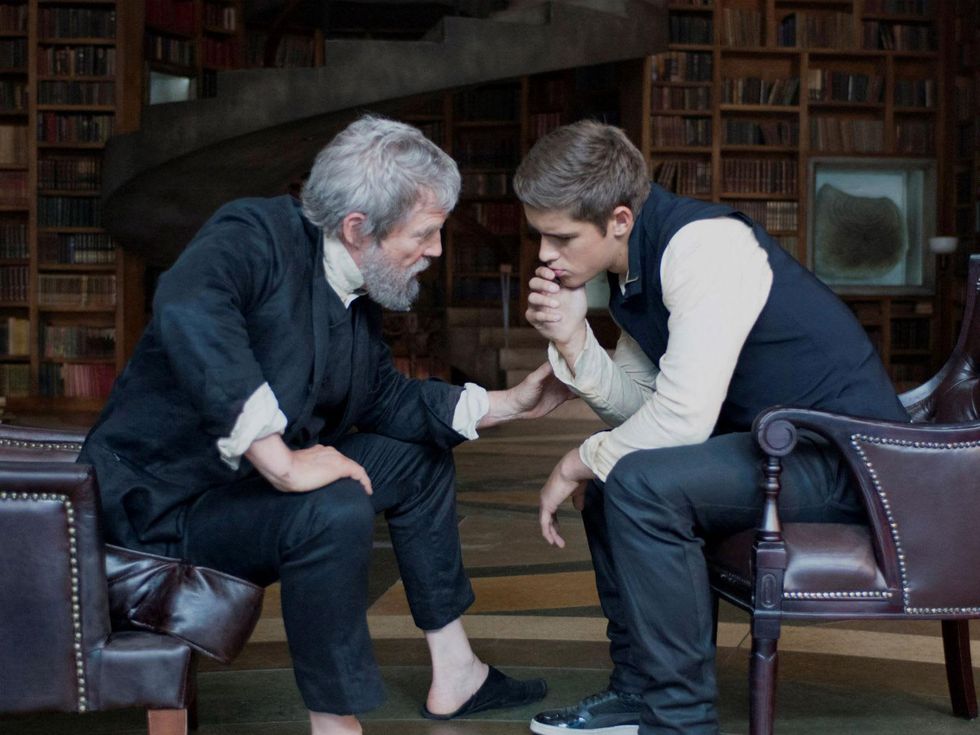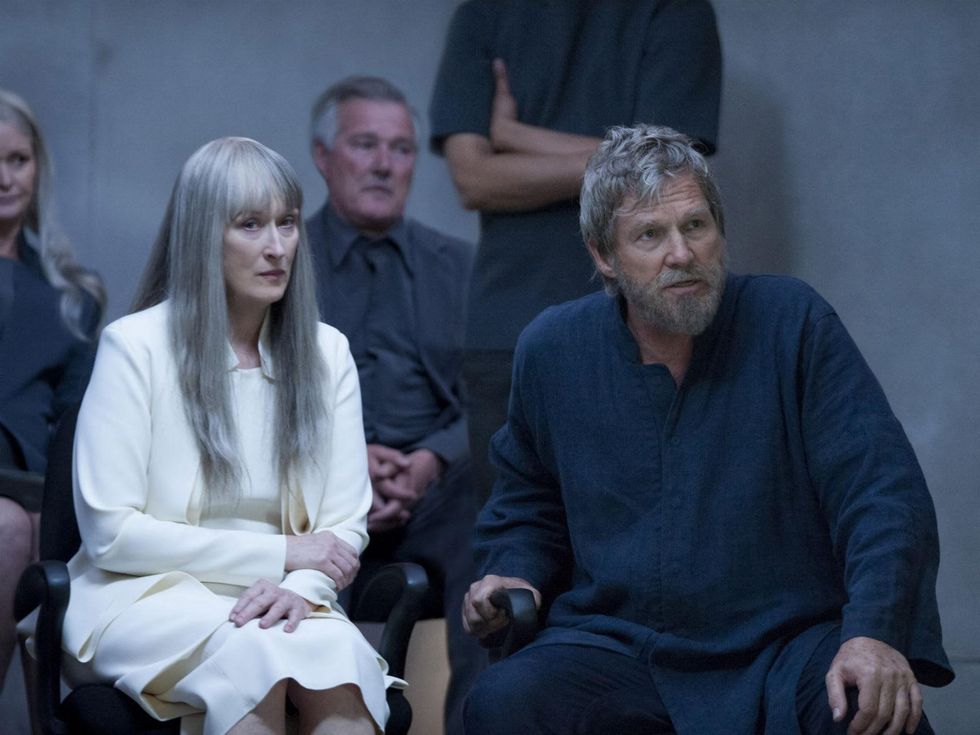Giver Doesn't Have the Goods
Moviegoers won't get much from The Giver despite intriguing premise
For a certain group of people, The Giver’s being adapted into a film is a longtime dream come true. The 1993 Lois Lowry novel, which won the prestigious Newbery Medal honoring children’s literature, was as beloved then as the Harry Potter books or The Hunger Games series are now.
Set in an undefined future, the story centers on Jonas (Brenton Thwaites), a boy who’s grown up in a supposedly utopian society, where differences are nonexistent. Everyone dresses in the same uniform, speaks in the same stilted tone and immediately apologizes for even the slightest breach of decorum.
The Giver examines the idea that those without emotion won’t know things like fear or pain, but they also won’t experience joy or excitement.
All of this sameness, however, results in a lack of emotional attachment to anything or anyone. When Jonas and his friends come of age, they are sorted into pre-determined societal roles. Jonas is given the rare honor of becoming the “Receiver of Information,” or someone designated to learn about the past in case that information is needed in the future.
Jonas gets this knowledge from The Giver (Jeff Bridges) and quickly discovers that the life he has known up until that point has been a lie. He sets out on a mission to spread what he knows, but the Chief Elder (Meryl Streep) and his parents (Katie Holmes and Alexander Skarsgard) challenge him at every turn.
The concept of the story is an intriguing one. By not having any emotions, people won’t know things like fear or pain, but they also won’t feel joy or excitement. Once Jonas experiences those things, he can’t go back, but is it worth it to disrupt the lives of everyone else to have them feeling the same things?
The delivery of the story is hit-and-miss. The suppression of differences has, somehow or another, deprived people of their ability to see color. Therefore much of the film is in black and white; color makes appearances when certain characters experience breakthroughs. It’s an idea that works stylistically, but it’s also something that conjures more questions than answers.
The story also lacks the suspense it requires. Although director Phillip Noyce and writers Michael Mitnick and Robert Weide do their best to play up certain people’s nefarious agendas, it’s obvious that, in this whitewashed and brainwashed society, nobody is all good or all bad. Everyone merely goes about his or her life without knowing any better.
Unfortunately, that doesn’t really make for a compelling film. We root for Jonas to succeed in his quest simply because he’s the main character, not because the end result is all that interesting or in question. The audience is like Jonas. We know both the joy and pain that knowledge can bring. But the film never adequately proves that the society it portrays is in desperate need of a change.
Up-and-comer Thwaites does an adequate job in the lead role, but he’s a bit of a blank slate. At first it seems as if his subdued performance is in service of the story, but it doesn’t really pick up once Jonas gains knowledge, so it’s unclear what he’s truly capable of.
The two pros — Bridges and Streep — bring class to the project, but neither elevates the others in the cast. Holmes and Skarsgard are the two other recognizable faces, but their roles don’t exactly leave the audience clamoring for more.
The Giver has faced a long road in making it to the big screen, and that may have been for good reason; certain stories just work better in written form. For both the society in the film and the audience watching it, too much knowledge may be a bad thing.




